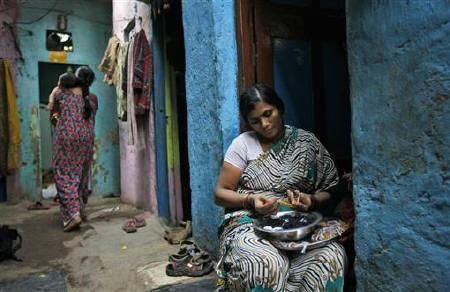Vinegar Cancer Test Reduces Cervical Cancer Deaths By One-Third, India Study Finds

A simple screening using vinegar reduced deaths caused by cervical cancer by one-third in a study involving more than 150,000 women in India over a 15-year period, researchers said on Sunday.
Cervical cancer, which is caused by Human Papilloma Virus, or HPV, is one of the most common cancers among women in developing countries.
In high and middle-income countries, including the U.S., Pap tests and tests for HPV facilitate cervical cancer diagnosis. But these cytology-based screening tests require sophisticated laboratories, infrastructure that allows rapid transport of smears and trained cytologists, all of which can be lacking in low-income settings.
“When applied in developing countries that have little or no access to Pap screening, this easy-to-implement procedure could ultimately prevent 22,000 deaths from cervical cancer in India and 72,000 deaths in low-resource countries worldwide each year,” the researchers reported at the American Society of Clinical Oncology, or ASCO, meeting in Chicago.
Early detection of cervical cancer is “particularly relevant in low-resource settings where the majority of patients are diagnosed in very late stages and where there is no screening,” according to the World Health Organization, or WHO.
“In India, a country where access to preventive medicine is severely limited, ordinary vinegar holds promise for saving thousands of women from dying of cervical cancer each year,” the researchers said.
The “randomized controlled trial” began in 1998 and was conducted on more than 150,000 women in the Mumbai slums and showed that “biennial screening for cervical cancer by trained nonmedical personnel using acetic acid reduced cervical cancer mortality by 31 percent.”
Researchers who attended the meeting said vinegar test, technically known as visual inspection using acetic acid, or VIA, has demonstrated accuracy that was comparable to Pap screening.
The test can be administered by people with just two weeks of training and without a laboratory. Cervix is swabbed with diluted vinegar, which causes abnormal cells to temporarily change color and can be detected with the naked eye or with a magnifying glass.
If abnormalities or precancerous lesions are detected during VIA, women can be treated on the same day by freezing and destroying the cancerous cells, according to the WHO.
Dr Surendra Shastri of Tata Memorial Hospital in Mumbai, India, the lead researcher who presented the findings in Chicago, said the Indian government planned to initiate a screening program on a population basis, according to a Reuters report.
In the state of Maharashtra, where the study was held, officials were planning to train health care workers to screen all women in 35-64 age group, Shastri said.
In African nations such as Malawi, Madagascar, Nigeria, Uganda, Tanzania and Zambia, VIA is now included as part of cervical cancer screening programs.
© Copyright IBTimes 2024. All rights reserved.






















